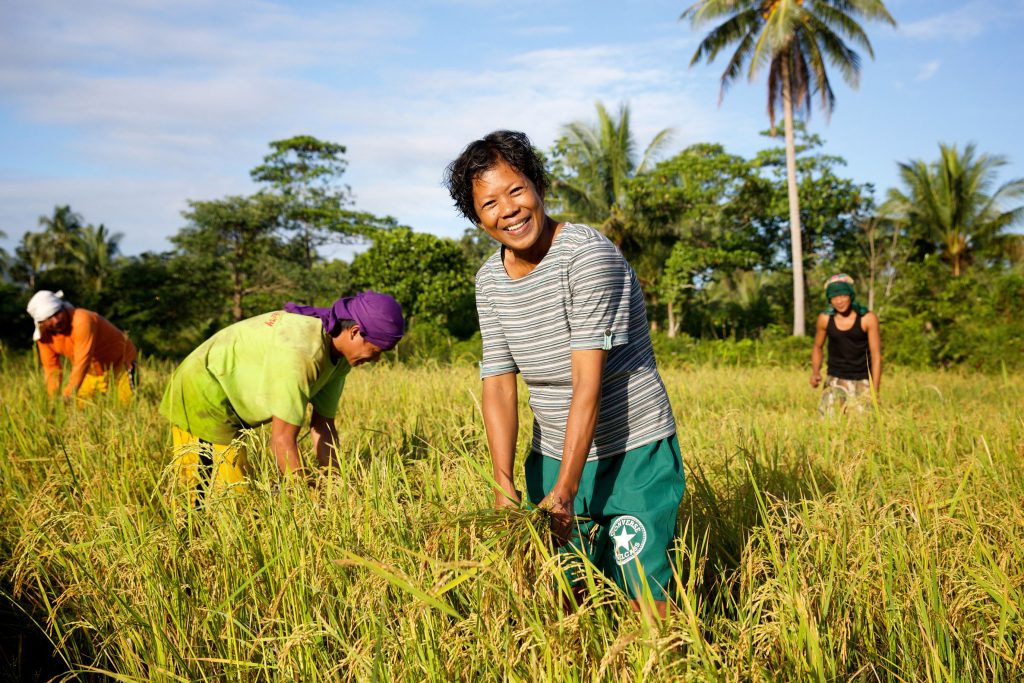Women like Dinia are overcoming the challenges of poverty in the Philippines, with the help and support of Caritas Australia.
Dinia lost not just her husband, but the financial security that his job at the mines brought when he passed away unexpectedly, while she was pregnant with their fifth child.

Caritas Australia’s partner, the Socio Pastoral Action Centre Foundation Inc. (SPACFI), together with the local government, identified Dinia’s family as one of the most vulnerable in her community, and invited her to participate in the Caritas Australia supported Integrated Community Development Program (ICDP).
The SPACFI began working with Dinia and has assisted her in developing a sustainable income that helps both her and her neighbours.
“The program aims to improve the capacity of the poorest communities, (to help) them to be self-reliant, and have more independence … to have a life of dignity and sustain their families,” says Cherie, a community development worker with SPACFI.
“Dinia showed determination and willingness to be part of the program,” which offered her livelihood training in organic gardening, making natural medicines, vermiculure, and organic rice farming.”
Dinia participated in training on raising income through pig rearing, and sharing their offspring with neighbours through SPACFI’s Hog Dispersal Program.
“The distribution of pigs is a system of sharing. The program provides you with a pig as long as you are able to raise piglets and pass two of them to others,” Dinia says.
Enabled by the support provided to her, Dinia is now active in her village through her involvement in her local People’s Organisation, where she shares her farming and natural healing skills, reflecting that self-giving love Pope Francis speaks about.
She believes a strong connection to her wider community is key to her and her neighbours’ quality of life, exemplified by SPACFI’s ‘Cornerstone principle’ of holistic community development.
“The Cornerstone (principle) is first of all about sharing, being generous with our neighbours.
“Even in difficult times when there isn’t enough rice, we always share it with the neighbours so everyone has rice to eat,” she said.
Dinia can now afford to provide her children with an education, and other necessities to live.
Her journey has resulted in having an integral role in her community, a sustainable livelihood, and a brighter future for her children.
“My life is much better now. It is much easier,” she said.
Widespread poverty in the Philippines means that more than a quarter of the population live below the poverty line of $1.90 a day, with around 10 million of the poorest being women.
Please donate to Project Compassion 2017 and help our most vulnerable neighbours in the Philippines to build a stronger future for their families and their communities.